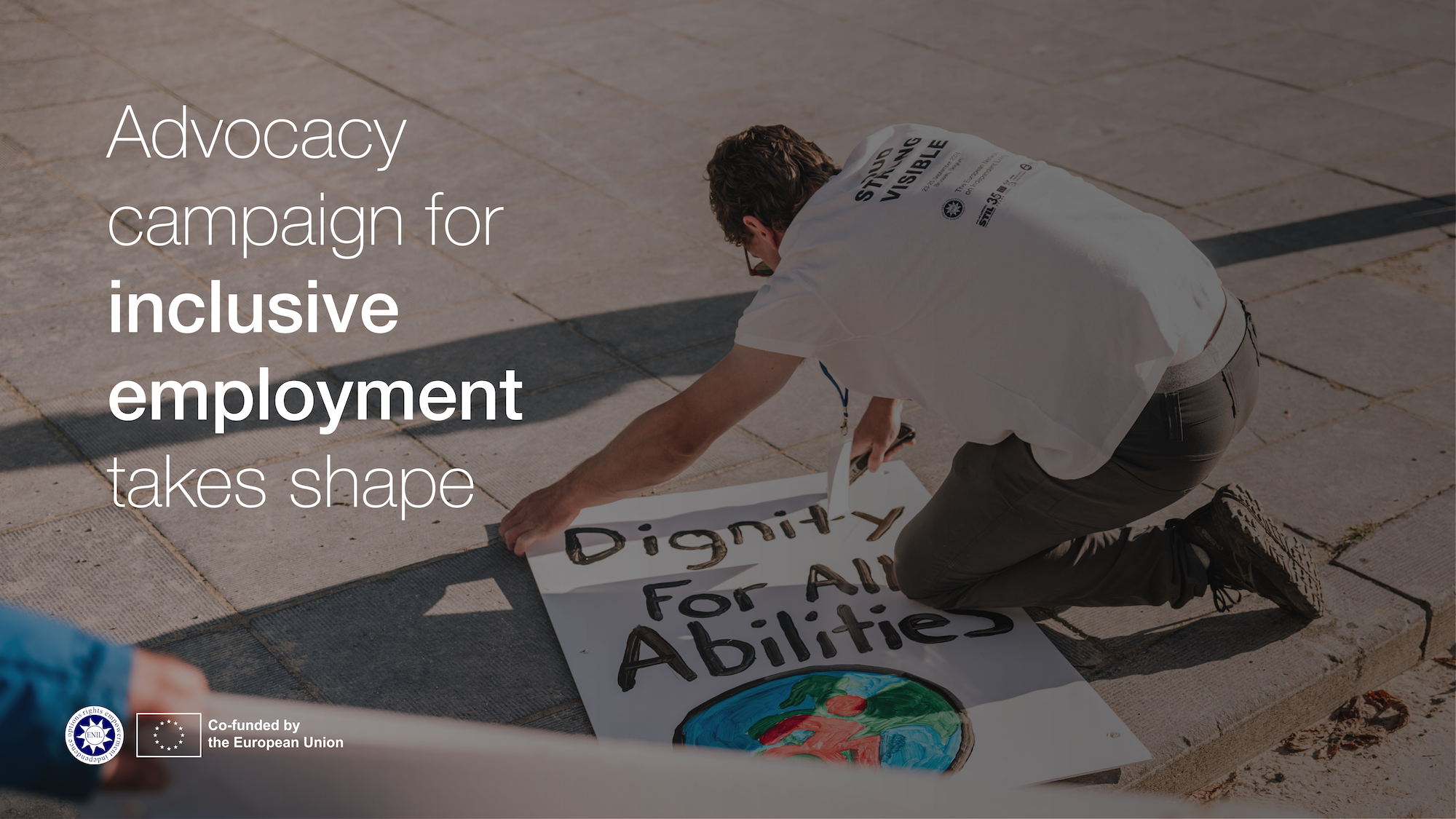On 2 December, the European Network on Independent Living, Disability Rights International (DRI) and the Validity Foundation organised an event in the European Parliament entitled ‘Group Homes – A Defensible Investment?’. The event was hosted by MEP Julie Ward (Socialists & Democrats) and took place in the framework of the European Disability and Development Week, coordinated by the International Disability and Development Consortium (IDDC).
The Parliament event was an opportunity to present the recently published DRI report on group homes for children in Bulgaria and to discuss Validity’s research on group homes for adults with disabilities. For ENIL, it was a chance to strengthen our advocacy efforts for better use of the European Structural and Investment Funds (ESI Funds) and to prevent their use to build new institutions for disabled children and adults, not just in Bulgaria.
The case against any new investment into institutions – large or small – is now stronger than ever. DRI’s findings are shocking not because they reveal abuse in institutions. It is widely understood that any type of institutional care, be it in a large facility or a group home for 10 – 15 children, is a breeding ground for abuse and neglect. That the report on Bulgaria revealed that disabled children and young adults were left to lie in cots for extended periods of time, were physically abused by the staff, kept naked in isolation rooms and held in cage beds, was to be expected of an underfunded social care system based entirely on the medical model of care. What was shocking is that these group homes are newly built facilities, funded largely by the European Union, as part of an effort “deinstitutionalise” the system of children’ services in the country. What was also shocking is the denial of any wrong-doing by the Bulgarian Government and a newly announced investment into yet more group homes for children.
Validity’s findings confirmed that, in the case of Bulgaria, ESI Funds have so far provided a negative incentive, with money going into segregating infrastructure, rather than the needed services that would support living in the community. Efforts to tackle the guardianship system, which deprives thousands of disabled adults of any decision-making capability, were also completely absent from the country’s reforms.
MEP Julie Ward, who sponsored the event, tried to map out a way forward, noting that the new European Commission has an opportunity to set things right. She highlighted the need for leadership by the new Commissioner for Equality, Helena Dalli, as well as Commissioners for Jobs and Social Rights, Nicolas Schmit, and Cohesion and Reforms, Elisa Ferreira. The European Parliament must also exercise its powers, in particular the relevant committees, dealing with the budget and the regional development. ENIL, DRI and Validity have already requested a meeting with Commissioner Dalli and will be following up with the other relevant officials in the European Commission, and with MEPs.
We are pleased that the pressure on the Member States and the European institutions to stop investing into group homes that deny disabled children and adults the right to live independently and to be included in the community, is not relenting. In addition to the findings presented in the Parliament, the recently released BBC and Al Jazeera documentaries tackling the misuse of ESI Funds give the European Commission, the European Parliament and other relevant agencies, enough evidence to finally take this human rights issue seriously.
Watch ‘Europe’s Recurring Shame – Part I and II’ on Al Jazeera here.


